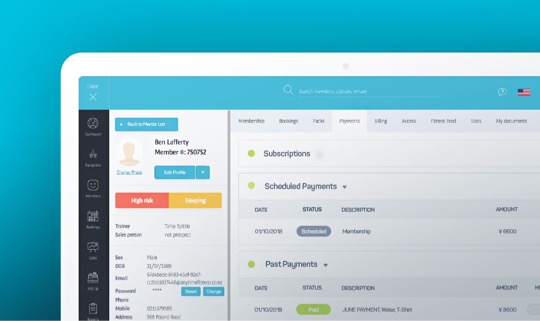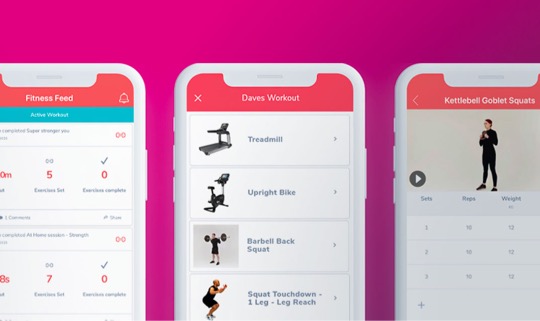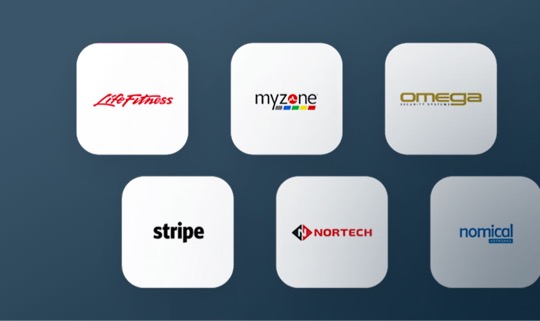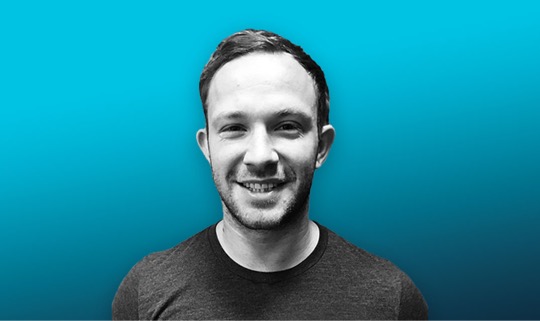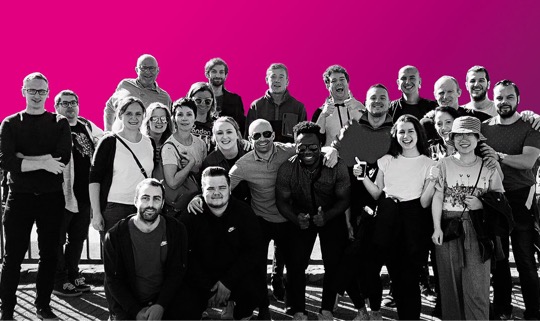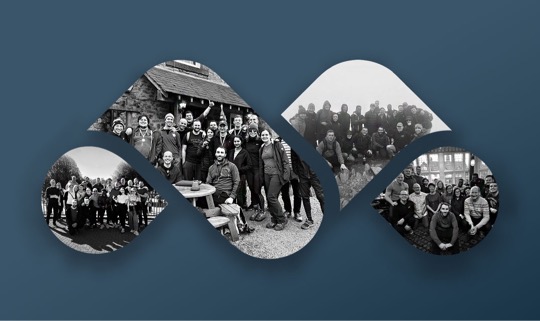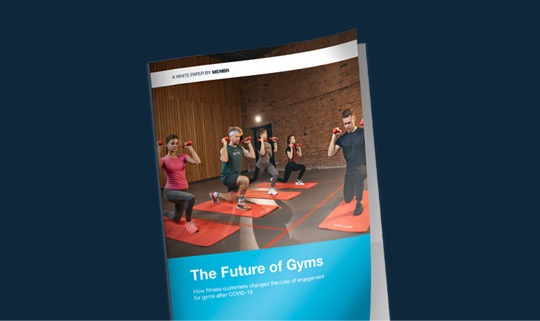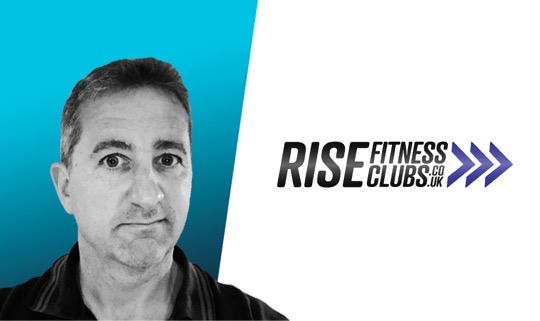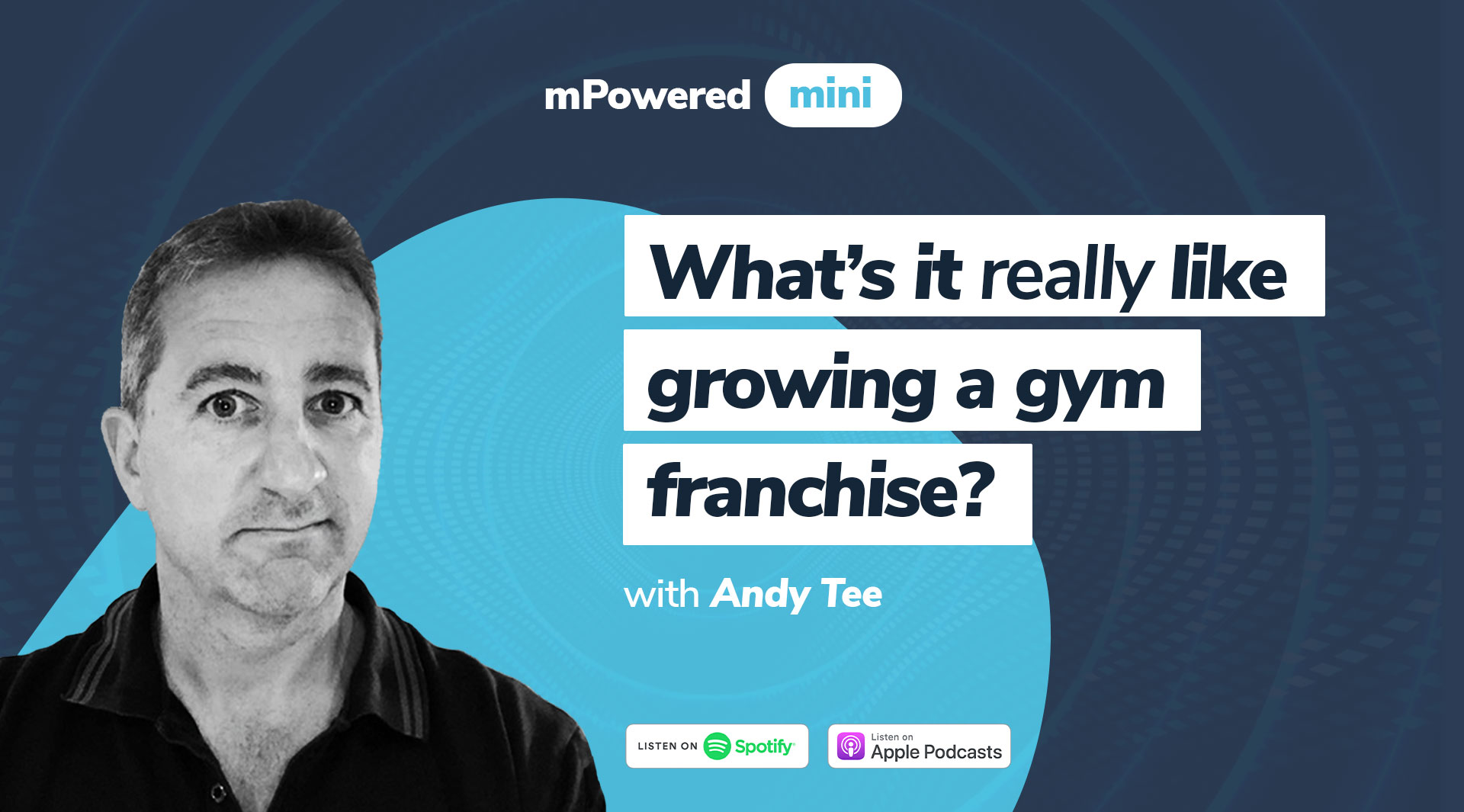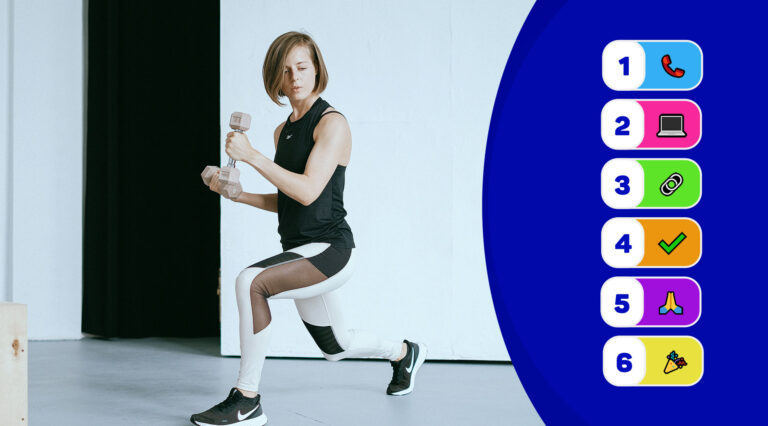[00:00:01] Craig McNeill: Okay. Welcome to mPowered Mini. Today I have a guest called Andy Tee, the legend that is! Andy, welcome to mPowered mini. How are you?
[00:00:11] Andy Tee: Honored, mate. Thank you very much. Honoured to be here.
[00:00:15] Craig McNeill: Awesome. It’s my living dream to speak to you.
[00:00:18] Andy Tee: Makes sense, .
[00:00:21] Craig McNeill: (Laughs) Andy, what are you doing these days? I know that you are busy, a busy man. What you up to?
[00:00:28] Andy Tee: Yeah. So the company that I’m involved with at the moment is called Rise Fitness. And we are, we’re just taken on our fifth site. So we are four years old, I think. And so our fifth site at Macclesfield Football Club came on board a couple of weeks ago.
[00:00:44] So just getting that, that company moving and hopefully growing.
[00:00:49] Craig McNeill: Awesome. Congrats your new club.
[00:00:51] Andy Tee: Thank you.
[00:00:51] Craig McNeill: You’ve been there a few times over the last couple of weeks. What gym style is Rise Fitness.
[00:00:55] Andy Tee: So Rise Fitness, like I said, there’s five clubs at the moment and, [00:01:01] where, what we’re, we’ve, we looked at with this model is shared space typically. We have a kind of, I would say, if I’m honest, a hotchpotch of sites at the moment. We’ve got two, two clubs that are within football clubs. We’ve got one that’s space within a college. One that’s a leisure club attached to a hotel and one standalone site.
[00:01:21] And while the facilities are different to each club, so two of them are wet sites with pools and spas and whatnot, and three of them are standalone gyms. We are looking at a smaller space these days. I’ve had my, my, my time in the big box clubs But my feeling now certainly with Rise, is that shared space is a, an angle that we’d like to investigate more because there’s in theory plenty of it out there.
[00:01:44] Craig McNeill: Yeah, sounds like it, goes to show you’ve got 80% of your clubs in that space, so I’m sure you’re learning by the week and the month of the different ways that you have to do things in a slightly different way.
[00:01:56] Andy Tee: Yeah. To totally. I think there’s a number of reasons why we’re looking at this [00:02:01] angle.
[00:02:01] Not least the fact that four of the clubs utility costs are borne by the landlord, which in the current climate is definitely no bad thing. I think we’re looking to grow relatively quickly, and you can do that with smaller spaces in shared spaces. Maybe a club that’s already there or a space that’s already there and is crying out for a gym.
[00:02:21] So rather than going back to the days of looking for a 25,000 square foot unit where there’s a minimal competition and, taking the risk that comes with that and the cost as well. This is a different angle and as I say, I’m sure there’s plenty of opportunities out there.
[00:02:36] And really we’re just scratching the surface at the moment and seeing where it takes us.
[00:02:40] Craig McNeill: Sounds exciting Andy. In terms of, obviously you mentioned Rise, you’ve been involved with Rise’s four years. You’ve done a few things before those four years as well haven’t you Andy?
[00:02:50] Andy Tee: (Laughs) I’ve done a few things Craig before that yeah! The potted history, is I mean I’ve never done anything else, is the first thing to say, so nothing to compare it with really. But a couple of gyms back in the day [00:03:01] one with a a wet club, one with a dry club, and then moved those on, I think around about 10, 12 years ago, just at the dawn of the budget, boom if you like, budget club, boom. And so we had a company called Simply Gym and we did quite well there. We, the timing was immaculate, so we went from one to 12 clubs in a few years. And then I exited from that probably five years ago, I would say, right? Dabbled in the boutique sector.
[00:03:25] And I’ve landed where I am now with Rise, like always on the move.
[00:03:29] Craig McNeill: Yeah. And this, I wasn’t, you might think I was being sarcastic cause I’m a sarcastic guy. I wasn’t actually being sarcastic. I’m actually really interested and that’s exactly why, because I think the questions I’m gonna ask you are gonna come from all those different spaces that you’ve been involved with and I’m sure you’ll take snippets from each one of those and build a picture for us today.
[00:03:51] So in your own words, what is it really like to be running your own business in fitness? .
[00:03:58] Andy Tee: At the moment or generally?
[00:03:59] I’ll go with, generally. [00:04:01] I think it’s great. There’s no two ways about it. It’s a great sector, great industry to be in most of the time. I think like any business owner, it can be lonely when it’s tough when it, when things aren’t quite going your way or when there’s worries or concerns.
[00:04:12] But that’s not just a fitness industry issue, that’s a business owner issue, I think. But when it’s good, it’s great. I have to say, I really enjoyed the last the last 25 years, but as I mentioned earlier I’ve not really done anything else. So I fell into fitness when I was a a whipper snapper and by hook or by crook I’ve ended up where I am.
[00:04:31] So I haven’t really got anything to compare it with, but I’m clearly quite happy doing it,
[00:04:36] Craig McNeill: That tells its own story. Andy as well doesn’t it?. That you,
[00:04:39] Andy Tee: I can’t do anything else?
[00:04:42] Craig McNeill: (Laughs) That you, you have done it for so long. What which one stands out? Obviously you’ve mentioned that you’ve actually had some experience in different, like verticals in the fitness industry.
[00:04:51] You you’re not a, a one trick pony. You are actually have a little bit of boutique space. You’ve actually had a little bit of budget. You’ve had small clubs. Which one is [00:05:01] actually more enjoyable from the day to day basis?
[00:05:04] Andy Tee: That’s a really difficult question because the enjoyment kind of comes in peaks and troughs and it isn’t just The sector of the industry that you’re involved in that I think decides whether you are enjoying it or whether you’re not enjoying it. The people that you work with is key and, reference people numerous times today, I’m sure. Cause it’s the most important aspect of it. But I think that probably where I got most satisfaction with growing SimplyGym so quickly and at the sort of the dawn of the budget boom. Where we didn’t really know where it was going. We didn’t realize quite that we were in the middle of what we were in the middle of when we were just flying by the seat of our pants growing because we could and seeing those clubs get to a point where they were flying was really satisfying.
[00:05:42] And, but we were all, we were so busy at the time, I don’t think we quite realized what we were achieving. So you look back now and if I look back on that, I’m probably proudest, I suppose of that. Did I enjoy it any more than I’m enjoying my current situation? No, probably not. But there’s something to be said for all of them.
[00:05:56] I mean in the early days when I was working all the hours God sends doing all the [00:06:01] jobs you can imagine in a leisure club getting my experience and learning the trade, that was great in its own way. Now a little bit more removed day to day than I have been. So there’s different, you can enjoy it in different ways, can’t you?
[00:06:11] I’m quite happy now.
[00:06:13] Craig McNeill: Must be really exciting to open a new club from however that comes about to open a new club. And you’ve done that a few times as well. So what’s that like in terms of, obviously you’re in that moment with Macclesfield as you mentioned. What’s that feeling like, Andy?
[00:06:28] Andy Tee: It’s slightly different because it’s already an existing club. I think when you go back to when we opened clubs from scratch, from the ground up, or even, for example, SimplyGym in Hinckley, where the building was literally built to our spec and then we pre-sold it and moved in. There’s an element of not knowing how it’s gonna go.
[00:06:45] You can do your prep all you like, you can check on the competition. You can get all your ducks in a line, but until you open the doors, Difficult to know exactly how it’s gonna go. So that’s quite exhilarating in a way. It could be fantastic or it could be not fantastic, but I think you surround yourself [00:07:01] with the right people.
[00:07:01] And not just staff, but with the right marketing guys, the right software guys, the right developers, the right fit out guys. And you give yourself the best shot at it. And we’ve been fortunate enough nine times out of 10 that, that it’s come off. But it’s exciting. It’s hard work, definitely hard work.
[00:07:18] But at times when you’re looking in the evenings, you’re looking at how many pre-sales, for example, you’ve had in, in a day or a week, and you see them ticking through at a rate that pleases you. And there’s nothing more satisfying, really.
[00:07:27] Craig McNeill: You put your neck on the line every single time, so it’s nice for you to get that feeling back, isn’t it?
[00:07:34] Andy Tee: Totally.
[00:07:34] Craig McNeill: Yeah. So You’ve mentioned it in what you’ve just said there, Andy, but I wanna ask you directly, what is the most enjoyable part of running your own gym?
[00:07:42] Andy Tee: Good question. I think. Without being too cheesy. I talked about people before and it probably relates to people. I We’re all in the business to, to make money, right? I That’s the point of any business. Largely the point of any business, but actually. I tend to get more satisfaction, enjoyment when I see people appreciating what we’re doing.
[00:08:00] I don’t just mean,[00:08:01] members. When you hear a member, we had one last week, I was just happened to be at reception and the people involved didn’t know that I was the owner of the club. I was just loitering at reception and I heard a chap saying that since he joined the club, it transformed his life.
[00:08:14] And for physical reasons, but also mental reasons, and that’s not a direct response to anything I’ve done particularly, but it does give you a sense of satisfaction because we are all in, in this to help people, right? That’s the whole point of the industry. So that’s a real win. I think in terms of enjoying what we do and also seeing some of the staff that, that come through and we get a lot of young personal trainers come through and there are certain companies out in the industry where they’ll have a very high turnover of PTs. They’ll be in five minutes, they’ve gone because they couldn’t make it work. And a host of other reasons. So I see, we see a 20 year old come in, newly qualified, fresh, wet behind the ears.
[00:08:51] And if you can give them the direction and the tools to actually go out and make a living from personal training. And again, case in point, we’ve got a couple of those that I’ve just been [00:09:01] talking to this week that’s really satisfying. Just seeing people grow as a result, alongside the obvious enjoyment of, getting in there and using the kit myself, I have to say.
[00:09:09] Craig McNeill: Do you?
[00:09:10] Andy Tee: Twice so far this year?
[00:09:13] Craig McNeill: And I can imagine you being undercover with your glasses and mustache when you’re in your clubs, by the way. What kind of staff numbers are involved in, in your clubs Andy because you’re right, obviously watching people grow through that journey and being part of that is, is not just members, it’s staff.
[00:09:30] Andy Tee: Yeah, it is. So we have a relatively lean I think back to staffing structures at gyms and health clubs 20 years ago and shudder at, how over staffed clubs were at that point. But and there’s a happy medium and I’m certainly one for having staff on the ground, so we have a club manager in each club, of course. And then typically they’ll have a team of personal trainers stroke team members who will, works and hours for us, and then in their own time, I it’s, I’m not reinventing the wheel here, but they’ll personal train in their own time. So typically there’ll be one, maybe two people on shift at any one time.
[00:10:00] [00:10:01] But actually you’ll probably see three or four staff in the building most of the time because a couple of them would be under their own steam. Yeah. But I like that model because to a member’s perspective, they’ll see four members of staff in there. They won’t particularly realize that maybe two of them are personal training.
[00:10:14] And it could, it builds a good team atmosphere. I think if people are in So it seems to work.
[00:10:19] Craig McNeill: Yeah, totally. It is a, it is an important factor, isn’t it, in terms of all this phrases of rockstar instructors and what have you. Great. But ultimately we want some consistency, and you mentioned it a couple of minutes ago about the turnover of staff.
[00:10:36] That does have an impact on the member experience when there’s something, someone new there frequently. Subconsciously the member’s thinking, gosh, I need to either ask a new person a question, which I’m feeling a little bit nervous about. Guess what? They don’t ask the question. And then secondly, I really built up a good relationship with X and now they’re not here.
[00:10:58] Actually, that has a negative impact in coming to your [00:11:01] business
[00:11:01] Andy Tee: Totally, I think, really what we’re all trying to do is make our gyms and our health cubs a second home for people. And if they don’t come for a couple of weeks or three weeks, four weeks, and then they walk through the door and they don’t recognize anybody, that, that can’t be a good thing, can’t be a good thing.
[00:11:15] Craig McNeill: Totally. Second home, I love that phrase. Okay, so in terms of flipping it totally the opposite way, What’s the biggest challenges? And I heard you mentioned right now before, I dunno whether you are gonna elaborate on that, but what, Andy, what’s the biggest challenges that, that you have facing you as a gym owner?
[00:11:34] Andy Tee: I think, you could, you can, and that’s a big question and. I would probably separate it out to, internal challenges and external challenges and internal challenges, day to day challenges typically revolve around people. I think most businesses would be the same there.
[00:11:48] I think that staff members staff and members I should say, you’re always gonna have small issues, hopefully resolvable issues. And I think Having some sort of semblance of people skills certainly helps in that area. And experience helps as well. [00:12:01] So I think those challenges are constant in any business.
[00:12:03] But as long as you listen to people and understand their perspective, I don’t think that, generally speaking, those are insurmountable challenges. The wider challenges at the moment, and what I probably touched on earlier with regards to the moment is just the general uncertainty. And that goes back to the last sort of three or four years.
[00:12:20] We don’t realize how good we had it five, 10 years ago. And the number of challenges that are set to our industry, our economy, our country’s had over the last three, four years has meant that planning’s been very difficult knowing what’s gonna happen. It’s been very difficult and I’m a big believer in turning a challenge into an opportunity, which sounds really cheesy and we’re trying to avoid cheese here today, but can’t help that on that occasion because, there are definite challenges out there, but there’s always an upside if you look hard enough for it.
[00:12:50] And I, a couple of examples, if you like it, the cost of living crisis at the moment. Means that inevitably one of the first things that people look up, do I need to spend or do I not need to spend on is a [00:13:01] gym membership. And I totally accept that. But if you flip that on its head if you look at our Dunstable club for example where we are very modestly priced people seem to be leaving clubs with a higher monthly subscription to come to us.
[00:13:15] So that’s a focus for us at the moment, is making people aware, not just Dunstable, but some of our other clubs, that actually fitness doesn’t have to cost the earth and, we can do what we can do to help you carry on your journey. So that, that’s one, one definite way of of flipping it on its head.
[00:13:29] COVID in itself was a huge challenge and I’m not the first one have to have said that there were definite opportunities and wins that, That came outta that. The clubs were closed, so we had nothing to do, but just look at the business and look at the inside of the club, the outside of the club, the whole business, see what we could do better.
[00:13:44] We did make quite a few changes. I’m sure most companies would say the same thing, made changes. So you try and make the best out of any situation, but the challenge is certainly, from my perspective at the moment, predominantly are external rather than internal.
[00:13:58] Craig McNeill: Sure. Absolutely. They’re also [00:14:01] in many regards, the uncontrollable as well.
[00:14:04] Andy Tee: Yeah, absolutely. Yeah. Something else, the landscape’s changed hugely in the last 10, 15 years in terms of competition. The competition 15, 10, 15 years ago, even 20 years ago, when we were opening Simply, we were the only budget club in town. So once we got to a town and announced we were there , everyone thought we were fantastic. There was six 17 quid for a gym membership. How can that be? Now anywhere you go, there’s a budget club within 50 feet of you so that, and not just budget clubs, the mid-market seems to be coming back. So there’s just an explosion of clubs, which is great for the population.
[00:14:38] But more of a challenge perhaps for operators. Yeah, sure. But
[00:14:42] Craig McNeill: it’s even more important then for you to. Your position in the market and being aware that you’re not for everybody and that’s okay.
[00:14:51] Andy Tee: Absolutely.
[00:14:52] Craig McNeill: In terms of, you mentioned before, so I think evolution is gonna change this question, but I’m gonna actually the next question in terms of on a given day, [00:15:01] how many different plates are you spinning?
[00:15:03] How many different hats are you wearing? And you mentioned before that 10 years ago, a little bit. Answer to what it is today. Maybe you’re gonna cross over all your experience in terms of give us an insight to just a general day of Andy Tee’s?
[00:15:19] Andy Tee: Friends are always asking me this , and I normally just give a very bland answer that there’s no two. That’s part of the thing I love about it, is there’s no two days the same and I’m now, we are in a fortunate position where the clubs have managers so they don’t tend to need me or probably want me there day to day.
[00:15:35] And that’s fine. That’s great. So I would suggest probably a couple of days, three days a week, I’m out on the road. At the clubs having a catch up and coffee with the managers and just going through a usual list of, like most operators do, of what’s working, what’s not working where’s the club at, et cetera.
[00:15:50] And then the other, the rest of the week I, perhaps I’m based on my office trying to separate the working in the business with the working out the business. So looking at where we’re going, how we’re gonna [00:16:01] get there what’s the direction of travel and then really dealing with a lot of admin.
[00:16:05] We’re quite a lean company Aside for myself, we’ve got club managers and club staff, so we don’t have the layers of middle management that bigger companies can justify. And that’s fine and that’s purposefully done, but it just means that there’s a bit more of the day to day admin, which someone’s gotta do.
[00:16:19] So it’s me.
[00:16:20] Craig McNeill: Just out of interest do you then structure your day in terms of blocks or are you picking up tasks in a priority order?
[00:16:28] No, I, I wouldn’t, I’m not a structured person particularly so rightly or wrongly, no. I’m gonna turn my computer on in the morning and see what he’s doing and like a lot of people, you make a list and then end up writing stuff that you’ve done on that list and crossing it off just to show you’ve done something.
[00:16:41] But no, I enjoy the not knowing really. , Yeah, but we’re a company in flux at the minute. We just, we’ve got to, to five clubs now and we’re looking to go again. So it may be that we do need to start looking at different different roles for different people. But at the moment it’s more of a, what I’ve explained then.
[00:16:59] There are days, [00:17:01] still days when. I’ll go and help out at a club and I’d like to do that. Week before last I was in the the change rooms, an un mentioned club shoveling out sewage cuz the drains were blocked. Yeah, that’s a hat I suppose. And that’s a plate to spin. Other days helping on reception.
[00:17:16] Andy Tee: So they keep my hand in and keep my understanding what, what’s going on the ground.
[00:17:21] Craig McNeill: And that, and I bet you that’s really worthwhile of your time because I bet you jump in a car head home from wherever you were, and your reflective practice is very different because of that.
[00:17:32] Andy Tee: Absolutely. That day or that hour or that kinda opportunity that you’ve had there. So then it takes you into a different
[00:17:38] space. Totally. And just chatting with members about, what they like about the club, what they don’t like about the club, what they think about this member of staff.
[00:17:44] That member of staff , what kit they think we need, what we don’t need. All the things that I’ll, if I didn’t go, I’ll be oblivious
[00:17:50] to. Yeah. Or if you ask the questions, you are gonna get a biased answer back naturally.
[00:17:57] Yeah.
[00:17:57] Craig McNeill: Cool. We will wrap it [00:18:01] there. I know I could keep asking you questions all day Andy I really hope our listeners have found some golden nuggets in there and there’s a lot of wealth of knowledge joking aside Andy. So if any of our listeners wanted to reach out to you, where could they do that?
[00:18:15] Andy Tee: The best way really would be, I don’t do LinkedIn, I’m afraid. Never have, never will. Email Andrew James t gmail.com. Awesome. Simple as that. Simples. Yeah.
[00:18:28] Craig McNeill: Thank you Andy, for your time today. It’s been great.
[00:18:30] Andy Tee: You’re very welcome.
[00:18:31] Craig McNeill: And thank you for the listeners for listening. And see you on the next episode.
